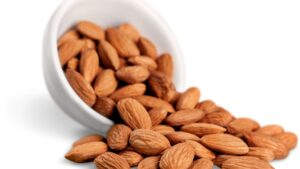Most women in their reproductive age suffer from endometriosis, with up to 2000 cases diagnosed yearly in the US. However, experts consider this number higher since many women do not know about the disease due to poor-quality diagnostics or ignorance of symptoms. Meanwhile, endometriosis significantly impairs your quality of life, causing infertility and depression. Your Jackson Heights endometriosis specialist treats this condition through various interventions. Here are facts about endometriosis you need to know.
What is endometriosis?
The inner part of your uterus is lined with a mucous membrane, also known as the endometrium. Under the influence of hormones during ovulation, the endometrium thickens and becomes loose so that the fertilized cell can attach to it.
If conception does not occur, the endometrium is rejected and excreted from the uterus during menstruation. In endometriosis, abnormal develops outside your uterus. Like normal endometrium, with menstruation, it clots, disintegrates, and finally bleeds like regular periods.
However, inflammation may occur since the cells cannot be expelled from the body, and scars may form on your pelvic organs, such as the fallopian tubes. With inflammation, you may suffer from severe pain during your periods. In addition, the scars can block the fallopian tubes, making it impossible to conceive.
What causes endometriosis?
There are many theories as to why endometrial tissue grows outside the uterus. Some experts suggest that hormones or immune factors may convert the cells on the uterus lining into the endometrium. Others believe that the ectopic endometrium arises from embryonic stem cells during puberty.
Who is likely to suffer from endometriosis?
Early menstruation before the age of 11 indicates a high likelihood of endometriosis in the future. But this is far from the only sign that you are at risk. Women aged 25 to 40 with short cycles of up to 27 days and prolonged menstrual periods of up to 7 days are more likely to suffer from this condition.
Other factors include an increase in production of estrogen, late menopause, and being underweight. As well, hereditary factors are to blame, and therefore, if your close relatives have this disease, you are likely to suffer from the condition.
Symptoms of endometriosis
The main symptom of endometriosis is severe chronic pelvic pain which often occurs during menstruation and sex.
In addition, you may experience heavy periods and sometimes inter-menstrual bleeding. In worst cases, you may be tormented by severe pain. Other times, the disease may progress with mild or no symptoms.
Although chronic, the symptoms can be controlled. With the help of medication, these can relieve the symptoms and slow down the progression of the disease. Your doctor may also prescribe pain relievers, and in severe cases, surgery may be recommended.
Endometriosis and infertility
Endometriosis can block the fallopian tubes, thereby causing infertility. In some cases, experts advise women with endometriosis not to postpone getting pregnant because the risk of not having children increases over time.
Timely diagnostics and treatment can allow you to live without excruciating pain every month. If you experience any symptoms, contact the experts at Raveco Medical for assessment and treatment.






Be First to Comment